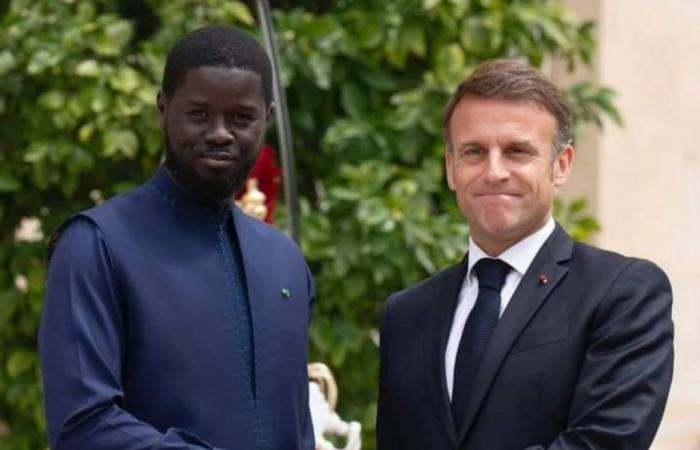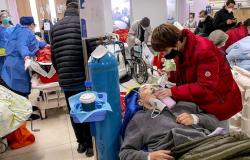
With the announced closure of French military bases in Senegal and Ivory Coast, a strong symbol of Paris’ historic presence in West Africa is disappearing. But this reconfiguration could also be an opportunity to redefine relations between France and the African continent, by adopting a more balanced approach respectful of local aspirations.
Towards cooperation without supervision
For decades, the French military presence in Senegal was seen as a tool of control as well as partnership. The French military base, drastically reduced by Abdoulaye Wade in 2010, which was originally perceived as a guarantor of national stability and a lever of strategic influence for France, has been the subject of criticism in recent years for its connotation neocolonial. Its definitive closure marks a symbolic turning point, responding to the desire of the new Senegalese regime to exercise its sovereignty.
In this context, France must rethink its cooperation. Rather than focusing on a military-security approach, Paris could broaden its scope of action to more inclusive and constructive areas. Education, infrastructure, culture and energy transition appear to be strategic axes for strengthening ties between the two parties.
Reinventing the “mindset” of French elites for a lasting partnership
With the definitive withdrawal of the French military presence on Senegalese soil, France faces a major challenge: rebuilding its ties with a country that has changed a lot.
Abandon paternalistic reflexes
For decades, France’s policy in Senegal was based on an asymmetrical relationship, marked by latent paternalism. Those were the times. It has long perceived itself, and until very recently, as the “Metropolis”, even the guide of this former colonized territory. This posture has become obsolete in a country where the affirmation of national sovereignty and the diversity of international partnerships are unavoidable realities. The method, perceived as paternalistic and disconnected from local realities, fuels resentment.
The change in mentality must go through an explicit recognition of this dynamic. French elites must get rid of the idea that France is essential to Africa. Today, the discourse that is being heard more and more is that it is time to treat African countries as equal and sovereign partners, capable of making their own decisions, even if these go against French or considered as such.
Two examples worth citing.
In March 2022, at the UN, Senegal caused French observers to react with its positioning during a resolution entitled “Aggression against Ukraine”, the text of which demanded “that Russia immediately cease using force against Ukraine and immediately, completely and unconditionally withdraw all its military forces” from Ukraine. Senegal (like 11 other African countries) abstained. In 2014, he adopted the same attitude regarding the crisis between Crimea and Russia. Was it a desire to assert itself differently on the international scene or a desire to calm things down at the regional and local level? Even. Some observers did not fail to react, like Nicolas Henin (journalist), by posting on his X account: « Petit reversal of Senegal, which finally voted at the Human Rights Council in favor of an independent international commission of inquiry following Russia’s aggression against Ukraine”, seeming to ignore that this country, even an ally of the Western bloc and of France in particular, has remained in its logic of adopting a strategy of non-alignment since the Cold War. Although economic repercussions have sometimes been felt locally, this is primarily a distant conflict taking place outside the continent.
Humility in the face of new geopolitical balances
French elites must recognize that France’s power in Senegal has declined. From there, it must accept “new” alliances and not consider such decisions as a betrayal, but a sovereign choice in a multipolar world. Adopting a humble posture in the face of this reality is not an admission of weakness, but proof of maturity.
This implies no longer perceiving Senegal’s partners (mainly China, Russia, Turkey) solely as competitors, while the “sovereignists” or “pan-Africans” according to the terminology give the impression of pleading for a “France frees » in place of other powers. France could explore synergies in tripartite projects, where each partner contributes with its specific strengths.
Acknowledge past failings
Any relationship is only lasting if it is based on trust. And to regain trust, France must fully recognize its historical errors. The stigma of colonization, the opaque practices of Françafrique and controversial military interventions continue to weigh heavily on its perception among the vast majority of young people.
The restitution of looted works of art, initiated but still incomplete, must be accelerated and accompanied by reinforced cooperation with cultural institutions. Likewise, the declassification of archives linked to certain sensitive periods in Franco-Senegalese history would be a signal of openness and transparency.
But this recognition must go beyond symbols to translate into concrete policies. The establishment of joint educational programs could make it possible to build a shared and balanced vision of history.
The new win-win partnership: after closure of the French base
With the definitive closure of the French military base in Dakar, Senegal is beginning a strategic redefinition of its international partnerships. This turning point marks a clear desire to assert its sovereignty while engaging in equitable and mutually beneficial collaborations. But what does Senegal really bring to this new partnership model?
An essential geostrategic position
Located at the western end of Africa, Senegal benefits from a privileged geographical position, offering direct access to the Atlantic and constituting a gateway to West Africa. Its political stability, in a sometimes troubled region, reinforces its attractiveness. This geographical location gives the country a key role in maritime security and control of trade routes.
A model of democratic stability
Since its independence in 1960, Senegal has been seen as a model of democracy in Africa. The three political alternations and respect for institutions make the country a reliable partner in a world where political stability is a rare commodity. This reputation strengthens Senegal’s capacity to play a mediating role in regional crises and to promote governance respectful of human rights.
Booming natural resources
The recent discovery of oil and gas deposits places Senegal at the heart of global energy issues. These resources, still underexploited, constitute a major asset in new economic partnerships, provided that they are managed in a transparent and sustainable manner. Furthermore, the country has significant mining reserves (phosphates, zircon) and an exclusive economic zone rich in fisheries resources, which attract investors eager to take advantage of this windfall.
An economic and regional hub under construction
With Dakar as an economic and logistics hub, Senegal positions itself as a nerve center for trade and business in West Africa. Ambitious projects, such as the Diamniadio Special Economic Zone and the expansion of the port of Dakar, although facing strong competition from Abidjan and Cotonou, reinforce this vision. The country still attracts foreign companies seeking to establish bases in a dynamic region, while benefiting from infrastructure and a business environment that is constantly being improved.
A dynamic and committed youth
With a predominantly young population, Senegal offers considerable human potential. This youth constitutes a competitive workforce and a breeding ground for innovation, particularly in the technological, cultural and entrepreneurial sectors. International partners find this demographic vitality a lever to develop sustainable and inclusive initiatives.
Towards a more balanced partnership
The closure of the French base reflects a broader trend in Senegal: that of a rejection of neocolonial relations in favor of a partnership based on mutual respect. However, the real influence now belongs to private companies which create wealth and some of which are more powerful than the Senegalese state itself. By way of comparison, French companies operate in Senegal which are said to account for 25% of tax revenues and nearly 10% of formal jobs. They are now in competition with Chinese, Turkish, Indian, Moroccan companies…
The real requirement for Senegalese public policies is to promote a sufficiently strong private sector that can compete with the foreign private sector in the name of open competition which is the main value of a liberal economy. Flexing your muscles is one thing, having the means to achieve your sovereignist ambition is another. In this meeting of globalization where each nation comes with its comparative advantage, what does Senegal offer? Companies powerful enough to gain market share elsewhere in the world? A consumer market rich enough to attract luxury industries and brands? Abundant natural resources?
The risk is to sell sovereignism to the point of making bad economic choices such as reinstating the entry visa in the name of reciprocity. Senegal is a tourist country. The sector constitutes the second source of foreign exchange for our economy. Making entry conditions into the country difficult, running the risk of technical faults as was the case in 2013 and 2015 (with machine bugs, travelers to their destination paid but breakdowns meant that they did not obtain visa, nor the reimbursement of their costs (the electronic visa system only works one in four times), can have a negative impact on tourism.
The sovereignist discourse risks being in vain if it does not make the economy its driving force. However, until then, we remain with speeches denouncing French political influence and which relate to an old conception of international relations. The urgency for these next five years is to build national economic capital to have something to contribute to the dynamic of co-construction that we must have with the world. Otherwise Senegal will continue to be an appendage, while the world adopts an extraordinary revolution with robotization, Artificial Intelligence and green energies.





